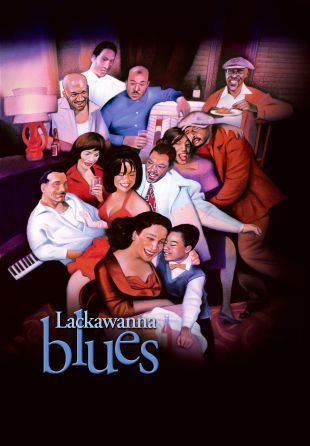Over the years, HBO has been the proud home to numerous films with powerful African-American storylines, which would have otherwise had difficulty reaching a wide audience. Lackawanna Blues, a film about a similar safe harbor for people, is one of the finest examples of that tradition. Ruben Santiago-Hudson adapts his own autobiographical one-man show in glorious fashion, making a big departure from the stage version by featuring a multiplicity of characters, but using them perfectly as flavor, rather than burdening each with a subplot. The actor-playwright himself essays one of these minor roles. Even though it's technically Santiago-Hudson's own story, the spirit of Lackawanna Blues belongs to his caretaker, nicknamed Nanny, whose home serves as a waystation for lives that have gotten off track, and to whom this film is dedicated. As Nanny, S. Epatha Merkerson proves she's one of the most underappreciated actors working today. There's a familiar divine goodness to her character, to be sure, but Merkerson won't settle for any token portrayal of African-American saintliness. Her every gesture is felt truly, whether she's laughing, spitting fire, or just letting an emotion creep slowly across her face. And the deceptive subtlety of her work reveals itself in the rare moments when she does let down that guard of stoical selflessness. Giving Lackawanna Blues that extra potency, the strong performances (by a who's who of contemporary black actors) are punctuated by sharp storytelling techniques. In particular, director George C. Wolfe uses the soundtrack's bounty of rhythmic instruments to punctuate his vignettes, both the stories told to young Ruben and the episodes in which he participates. The sum total is a nostalgic salute to a bygone era of communal living, where if not everything was perfect, at least it was full of vibrancy, personality, and personalities.

Lackawanna Blues (2004)
Directed by George C. Wolfe
Genres - Drama, Music |
Sub-Genres - Coming-of-Age, Period Film, Urban Drama |
Release Date - Jan 26, 2005 (USA - Unknown) |
Run Time - 95 min. |
Countries - United States |
MPAA Rating - PG13
Share on